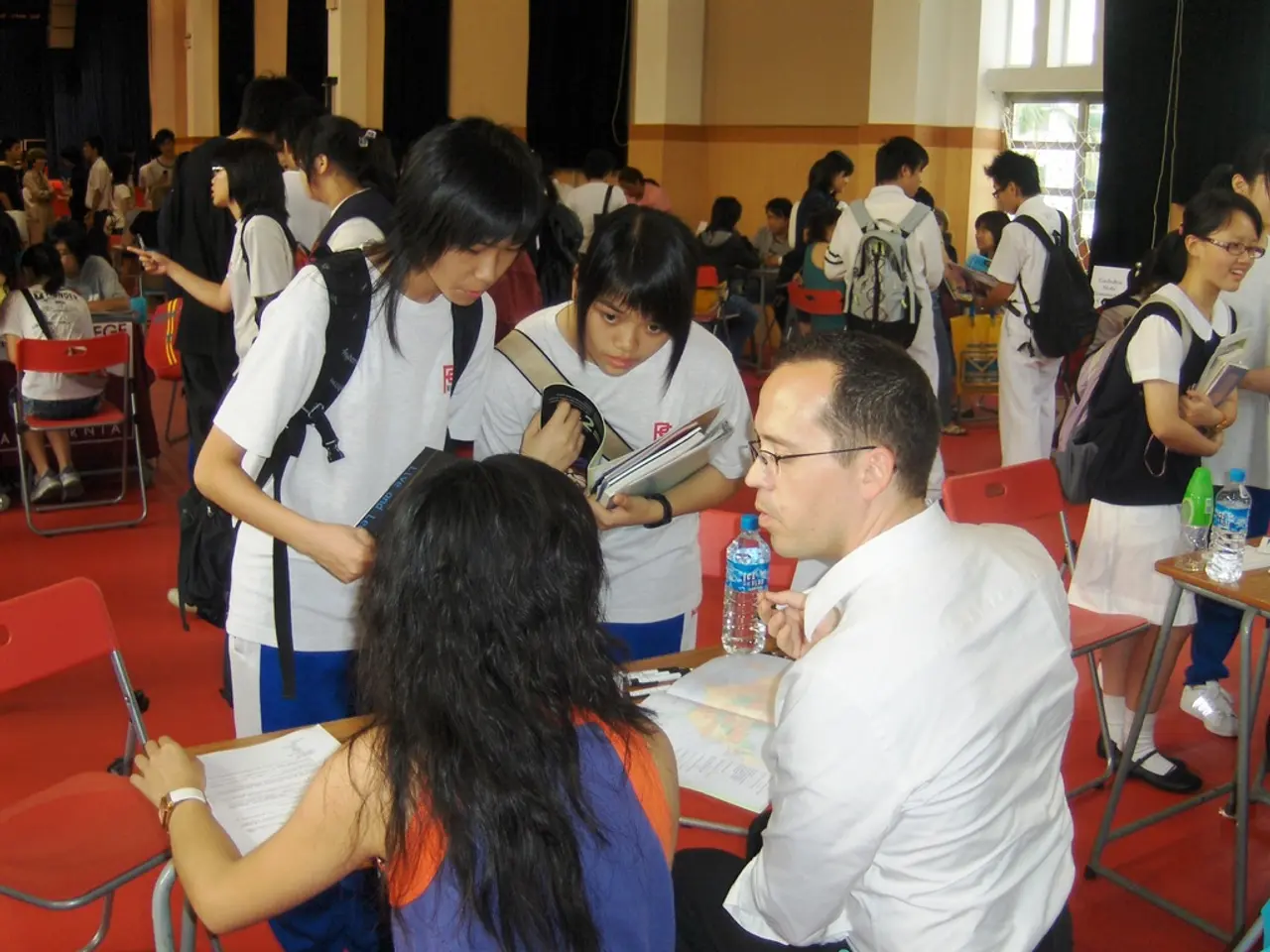Saving Money on College Taxes: Easy Steps to Follow
In Austria, students can reap numerous financial benefits, allowances, and refunds, provided they meet specific criteria related to their educational status, employment, and social need. Here's a breakdown of the key requirements and benefits for students in Austria:
Employed Students
Students who are employed can deduct expenses associated with their school education from their taxable income, resulting in a wage tax reduction. To qualify for this benefit, they must have been employed continuously for at least six months and be eligible for educational leave, which is subsidized with a further training allowance equivalent to unemployment benefits for up to 12 months [1].
Vocational and Academic Students
Students enrolled in vocational or academic schools who require financial assistance may receive support for participating in longer school events (more than four days) and can apply for reductions in childcare fees and overnight accommodation contributions at all-day schools or boarding houses [1].
Accident Insurance
All students are covered by accident insurance for the duration of their schooling, and apprentices may be eligible for additional subsidies for travel, housing, and food costs depending on the province or municipality [1].
Higher Education Students
Financial support is available for higher education students under the Students Support Act (“Studienförderungsgesetz”). Eligible beneficiaries include Austrian citizens and equivalent foreigners or stateless persons enrolled in degree programs at public universities, universities of applied sciences, and teacher education colleges. Supports include study grants, allowances, insurance contributions, scholarships for studies abroad, commuting allowances, merit or needs-based grants, and travel scholarships [3].
Family Bonus Plus
For families, the Family Bonus Plus tax deduction is available for parents for children aged 18–24, which can indirectly benefit students by reducing their family's tax burden [3].
Negative Tax (SV bonus)
As a low-income earner, students can deduct social security contributions via the negative tax and receive half of the amounts back [4]. This benefit applies to students who earn less than €21,500 per year and pay social security contributions [2].
Other Benefits
- Students who are employed on a low scale during their studies can self-insure for health insurance.
- Interns and mandatory interns usually qualify for negative tax.
- Students can choose to be co-insured with their parents, saving on their own health insurance and benefiting from their parents' health insurance fund.
- Students can reclaim a part of the retroactive health insurance payments via the negative tax.
- The Student Union Tax Consultation provides support for students who need help understanding employment relationships, income limits, negative tax, etc.
- Students should submit their study confirmation to the tax office for family allowance.
- If a student's place of study is more than 80km away from their parents' place of residence or the fastest public transport connection takes more than one hour, their parents can apply for a monthly tax allowance of €110.
- Advertising costs can be claimed through the Employee's tax return (ANV) for students who earn more than €12,000 per year.
- Students can deduct advertising costs from taxes, including tuition fees, textbooks, laptop, travel costs, and other necessary study expenses.
For more detailed information about the financial conditions and situations of students, students can refer to the website of the Chamber of Labor [5]. It is essential for students to keep receipts for expenses related to their studies for seven years.
References:
[1] Austrian Federal Ministry of Labour, Social Affairs, Health and Consumer Protection
[2] Austrian Federal Ministry of Finance
[3] Austrian Federal Ministry of Education, Science and Research
[4] Austrian Federal Ministry of Finance
[5] Austrian Chamber of Labour
- To further support their personal-finance management, students in Austria may find helpful resources on the Austrian Chamber of Labour's website for comprehending various financial conditions and situations related to education and self-development.
- In addition to the wage tax reduction for employed students, higher education students in Austria may qualify for various supports under the Students Support Act, such as study grants, allowances, and scholarships for studies abroad, which can contribute significantly to their personal-finance.




